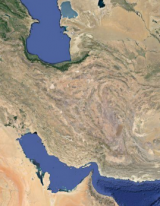The Atlantic Council’s Iran Task Force and Cyber Statecraft Initiative have colaunched a new issue brief entitled “Iran: How a Third Tier Cyber Power Can Still Threaten the United States.” Written by South Asia Center Senior Fellow Barbara Slavin and Cyber Statecraft Initiative Director Jason Healey, the brief evaluates Iran’s cyber warfare capabilities and the United States’ vulnerability to cyber attacks within the context of already tense relations between the two nations.
When most people think of the “military option” against Iran, they imagine a US attack that takes out Iran’s most important known nuclear facilities. They expect Iran to retaliate by closing the Strait of Hormuz, sending missiles into Israel, and supporting terrorist attacks on US personnel in Iraq and Afghanistan.
But what if the response came in the form of an anonymous cyber attack that shut down the New York Stock Exchange for a few hours? Or an assault that cut off electrical power in a major US city, froze civilian air traffic, or interfered with further military strikes on Iran by conveying incorrect information to American military commanders?
The brief explores the history and impact of cyber conflict between the United States and Iran, including the United States and Israel’s Stuxnet attack on Iranian nuclear centrifuges in Natanz, and considers the strategic and political implications of future cyber attacks.
Despite Iran’s lesser capabilities in the cyber field compared to the United States, it can still pose a significant challenge to the United States in terms of economic and political consequences, the brief concludes.
The Iran Task Force, launched in 2010 and chaired by Ambassador Stuart Eizenstat, seeks to perform a comprehensive analysis of Iran’s internal political landscape, as well as its role in the region and globally, to answer the question of whether there are elements within the country and region that can build the basis for an improved relationship with the West and how these elements, if they exist, could be utilized by US policymakers.
The Atlantic Council’s Cyber Statecraft Initiative helps foster international cooperation and understanding of new forms of competition and conflict in cyberspace through global engagement and thought leadership. This report is sponsored by Saab North America, Inc.
Media Mentions:
- Will the U.S.-Iran Cyber Conflict Escalate? – National Iranian American Council, 8/7

